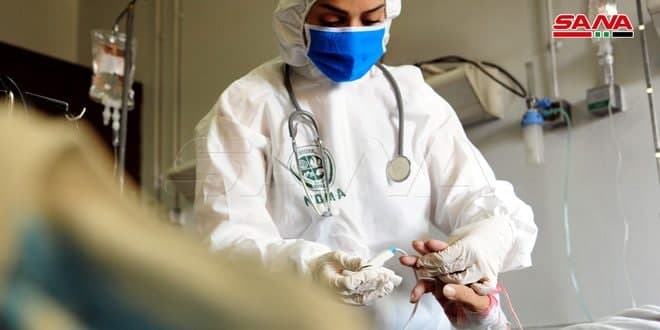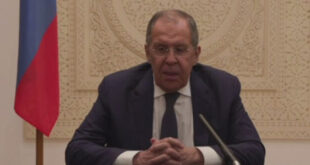Damascus, SANA- The health sector in Syria is one of the most prominent state-subsidized sectors which seeks to provide various health services to citizens through hospitals, health centers and mobile clinics, which include ambulances, surgeries, vaccines and medicines.
The number of services provided in public hospitals in various provinces during the past year reached up to 21,152,700, the number of patients who visited the emergency departments 2,468,058 and the number of patients who visited clinics reached 1,880,147.
Meanwhile, the number of heart surgeries in the public hospitals amounted to 1,857 while vascular surgeries reached 1266, the number of dialysis sessions hit 294,677, the kidney transplant surgeries 133, and the total health center services climbed to 12,690,009.
Despite all the difficulties as a result of the Western siege and unilateral coercive measures on Syria, the Ministry of Health is working to provide the necessary medicines by encouraging the local industry and pharmaceutical manufacturing, increasing national production rates and developing pharmaceutical exports.
The proportion of locally manufactured medicines compared to imported medicines reached 80 percent, and the local coverage rate of the national pharmaceutical production reached 85 percent.
The number of local brands licensed during the past year amounted to 660 products, and the number of the offered local brands reached 540 products during the same period.
13 new production lines were also added and one pharmaceutical factory was licensed, according to the data of the Health Ministry.
Health Minister, Dr. Hassan al-Ghobash, said that a number of types of medicines were secured through the current budget of the central administration, and their value amounts to 91 billion Syrian pounds, in addition to granting exemptions to secure medicines and vaccines through international organizations whose value amounted to approximately 117 billion Syrian pounds.
The Health Ministry is keen to provide all children’s vaccinations and vitamin A, and there are no interruptions in them, as it periodically implements national campaigns to vaccinate children and follow up on dropouts.
The Ministry has also expanded a number of clinics within its programs, according to Dr. al-Ghobash, to become 978 nutrition monitoring clinics and 128 community management clinics for malnutrition.
The Ministry continues its efforts to restore what was destroyed by terrorism, as 31 health centers have been renovated and 11 prefabricated mobile clinics have been secured in the provinces to provide services in areas where the centers need rehabilitation.
Dr. al-Ghobash revealed that there are 45 mobile clinics in most provinces serving areas where there is no health center or hospital, pointing out that the number of services provided by these clinics reached up to 153,636.
He added the emergency system has been supplied with 43 new ambulances, including 10 four-wheel drive vehicles, 5 mobile clinics, in addition to the installation of 16 cold rooms and 180 refrigerators working on solar energy to ensure the preservation of vaccines.
The number of public hospitals in Syria is 101, of which 47 are fully operational, 24 are partially, and 30 are out of service due to terrorism, according to Dr. al-Ghobash.
During the past year, the General Authority of Aleppo Eye Surgical Hospital was inaugurated with a capacity of 25 beds, and Jableh National Hospital was also opened in Lattakia.
Two mobile hospitals, and the intensive care hospital were prepared in Dummar in Damascus with a capacity of 40 beds, in addition to preparing Harasta Hospital in Damascus Countryside with a capacity of 100 beds, and the Children’s Hospital in Aleppo in a step for opening them and putting them into service.
With regard to addressing the novel coronavirus, Dr. al-Ghobash stated that an emergency hospital was opened at the beginning of 2021 in Damascus with a capacity of 120 beds to support patients with oxygen, relieve pressure on public hospitals, and prepare a plan of action, follow-up and update it in a timely manner to ensure the efficiency of case management and the establishment of an emergency room.
Dr. al-Ghobash indicated that the number of isolation beds and intensive care units has been expanded in all hospitals by 2,120 isolation beds and 732 intensive care units.
He added that the number of laboratories for detecting the Coronavirus which are affiliated with the Health Ministry reached 7 labs in Damascus and its countryside, Homs, Aleppo, Tartous, Lattakia and Hama.
Ruaa al-Jazaeri
 Syrian Arab News Agency S A N A
Syrian Arab News Agency S A N A

